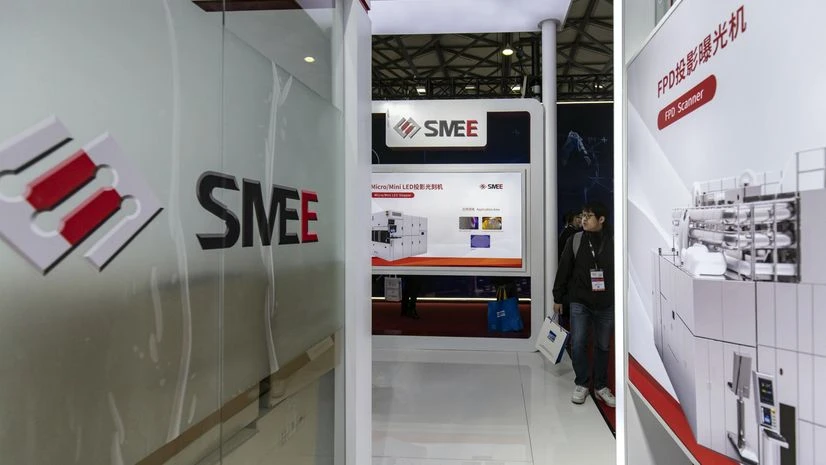China has made significant strides in developing its own chipmaking equipment, aiming to overcome U.S. sanctions that hinder its semiconductor goals. The country’s Ministry of Industry and Information Technology recently announced a new laser-based immersion lithography machine capable of producing chips with resolutions of 65 nanometers or better. This marks a notable advancement from previous technology that operated at 90 nanometers. Companies like Shanghai Micro Electronics Equipment Group (SMEE) are working hard to catch up with leading suppliers, such as ASML, which currently dominate the industry. However, the U.S. continues to impose strict export controls to limit China’s access to advanced chip manufacturing technologies, which poses challenges for its ambitions in emerging fields like artificial intelligence.
China has made significant strides in its chipmaking technology amidst ongoing US sanctions that aim to limit its semiconductor ambitions. According to the Ministry of Industry and Information Technology (MIIT), state-backed organizations have been advised to adopt a new type of laser-based immersion lithography machine capable of producing chips with a resolution of 65 nanometers, marking a notable advancement from the previous capability of 90 nanometers by the Shanghai Micro Electronics Equipment Group (SMEE).
The development of sophisticated chipmaking equipment has been a critical challenge for China, especially given the restrictions on advanced technology suppliers such as ASML Holding NV, which are prohibited from shipping their state-of-the-art machines to China. Companies like SMEE are racing to innovate and narrow the gap with these suppliers, but they still face a long journey ahead. To put things into perspective, ASML’s cutting-edge lithography machines can achieve resolutions as low as 8 nanometers, enabling the production of advanced chips.
Moreover, the MIIT has highlighted the need for a range of other domestically developed chip-related equipment, including oxidation furnaces and dry-etching tools, to enhance China’s semiconductor capabilities. However, transparency within Chinese semiconductor manufacturers remains limited, as the sector is deemed vital for national security. While it is believed that China is currently capable of producing 28-nanometer chips, there are concerns about its ability to progress further due to existing technological barriers.
US officials have implemented stringent export controls on semiconductor technology to China, and have also urged the Netherlands to enforce stricter regulations on ASML’s operations in the region. This ongoing geopolitical tussle underscores the critical nature of the semiconductor sector in global technology and national security.
As China continues to invest in its semiconductor industry, the race to innovate within chipmaking technology remains fierce and is likely to shape the future landscape of tech globally.
Tags: semiconductors, China, chipmaking, technology, US sanctions, MIIT, ASML, SMEE, lithography machines, national security, export controls.
-
What are the recent developments in China’s chipmaking technology?
China claims to have made significant advancements in chipmaking technology, despite facing stricter restrictions from the US on equipment exports. -
How are US restrictions affecting China’s chip industry?
The US has imposed tighter controls on the export of chipmaking equipment and technology to China, aiming to limit its semiconductor capabilities. -
Does China have the resources to advance its chip industry?
Yes, China is investing heavily in research and development, along with supporting domestic companies to improve their chipmaking capabilities. -
What impact will China’s advancements have on global tech supply chains?
If China successfully advances its chipmaking technology, it could lead to increased competition and potential changes in global tech supply chains, affecting various industries. - How might the US respond to China’s progress in chipmaking?
The US may consider further tightening export controls or increasing support for its own semiconductor industry to maintain a competitive edge.
)





